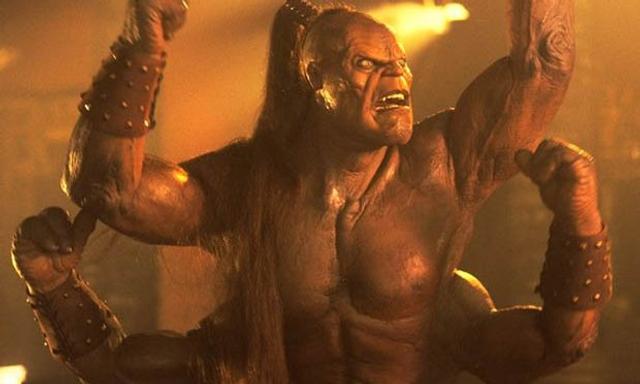With Warcraft and Assassin's Creed now taking a critical pummeling, the reality is clear - we are never going to get a decent adaptation of a videogame.
Warcraft may have some interesting moments and was a valiant attempt by Duncan Jones, but it couldn't even muster a triple-digit take at the US box office. Were it not for the all-powerful Chinese box office, Warcraft would have been a disaster. As it stands, the fate of the franchise is largely uncertain and many believe it will be quietly cancelled and pulled from release schedules.
Assassin's Creed, meanwhile, is currently tracking for a $30 million opening in the US and is currently sitting at 18% on Rotten Tomatoes. With a production budget of $125 million and probably a similar amount in marketing, a huge drop in the second week takings - generated by poor word-of-mouth - will likely push the film out of cinemas by its third or fourth week.
The sad fact is that there was hope - real, genuine hope - for both Warcraft and Assassin's Creed. Prior to these, videogame adaptations were largely directed by journeyman directors with little experience with actors or deep screenplays. They were mostly visual effects specialists who could rope a workable script around them. Duncan Jones was coming off the back of Source Code and Moon, two critically-acclaimed sci-fi thrillers with a cerebral edge to them. Warcraft was intended to be the launching pad for Jones' career in marquee films. Meanwhile, Justin Kurzel had directed Michael Fassbender in a deeply visual retelling of Macbeth that had won high praise from many critics. Jones even admitted to being a fan of Warcraft and having played the RPG quite religiously before he signed on for the film. Kurzel didn't have this qualifier, mind, but he appeared to be a strong enough director to be able to understand the intricacies of the game and translate it effectively.
The old cliches as to why videogame adaptations don't work is that gaming is an active experience whilst films are a passive one. That, frankly, doesn't hold water. Videogames have such intricate and detailed stories now with their own worlds, lore and universes that would rival comic-book blockbusters. Indeed, many analysts believed that videogame adaptations would become the next genre on the basis of this. Not one single videogame adaptation has so far managed to score over 60% on Metacritic or Rotten Tomatoes. It's clear now that the problem with videogame adaptations is much more systemic than people may have realised.
You only need to look at the most popular videogames to understand the problem. Red Dead Redemption borrows heavily from Spaghetti Westerns. Grand Theft Auto V cited influences such as Michael Mann's Heat and Martin Brest's Beverly Hills Cop. Overwatch's character trailers looked like they could have been made by Pixar. Dead Space was heavily guided by Ridley Scott's Alien. Even Warcraft was borrowing from Tolkien's Lord of the Rings with some of its imagery, long before Peter Jackson put the film into production.
There have been some unique and original games that took no cue from films. Portal, for example, used the likes of JK Simmons and Stephen Merchant to voice characters - but neither were calling on any reference or parallel in their performance. Dishonored, as well, had Susan Sarandon, Brad Dourif and Lena Headey voice a number of characters in the game. However, in truth, most stories in videogames are significantly more open to cliche and tired storytelling mechanics and players are more forgiving than film audiences. After all, it's an active experience and you're more concerned with surviving or fighting or actively playing than whether or not there's plotholes in the story. More to the point, characters in these games are intentionally one-dimensional. They're meant to be a blank slate that the player can project themselves onto. The villains have little in the way of nuance and the few that do are often taking a leaf out of classic screen villains - the misguided idealist, the former colleague, the insane scientist.
Earlier attempts at videogame adaptations, in a way, embraced the weirdness. Mortal Kombat and Street Fighter were both unintentionally hilarious and it's clear that the directors were aware of the stupidity inherent in them. Angelina Jolie's Tomb Raider simply jettisoned sections of the game that didn't fit and did its own thing. Jake Gyllenhaal's Prince Of Persia tried more than a few flourishes to get it to work. The few that did try to stick religiously to the plot of the game - like Silent Hill, for example - were unfavourably compared with the films that inspired the game originally. They just couldn't win. It's easy to see why so many studios are keen to make videogame adaptations work. They have a built-in audience that's loyal to a fault, there doesn't need to much in terms of brand promotion because they're usually well-known enough already and there's often a rich library of stories to choose from to adapt.
Sadly, the time has come to draw a line under videogame adaptations and move on. Be honest - can you name a decent videogame adaptation?









































































